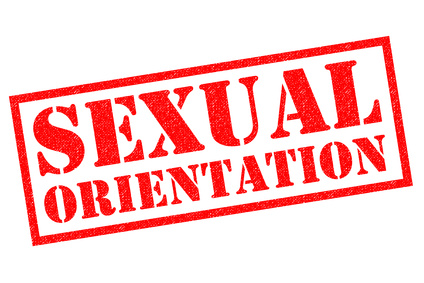Discrimination Based on Perceived Sexual Orientation??

the situation
An employee claims that she was repeatedly harassed by her supervisor in ways seemingly related to her sexual orientation—frequently saying that she dressed like a lesbian and similar remarks. The employee is actually heterosexual and married to a man. But based on the supervisor’s conduct, other employees begin to actually think that the employee is gay and she begins to feel compelled to explain her sexual orientation. If the employee quits because of the alleged harassment, can she bring a claim under Title VII?
The ruling
A federal court in Pennsylvania recently found that a plaintiff in similar circumstances had properly stated a claim under Title VII. Ellingsworth v. Hartford Fire Ins. Co., Case No. 5:16-cv-03187 (E.D. Pa. March 22, 2017).
Marykate Ellingsworth worked for The Hartford as a customer service representative. Ellingsworth is a heterosexual female married to a man. However, Ellingsworth claims that at some point, Ellingsworth’s supervisor, Angela Ferrier, began repeatedly harassing her, telling her she “dresses like a dyke.” Ferrier also said these things about Ellingsworth’s attire to her coworkers, claimed that she has a “lesbian tattoo” and even went so far as to tell coworkers that Ellingsworth was a lesbian. Based on all of this, some of Ellingsworth’s coworkers began to think she was gay and Ellingsworth felt compelled to explain her sexual orientation to her colleagues. Ellingsworth claims that this caused her severe depression and anxiety.
When Ellingsworth did not get any sort of relief after complaining about the conduct, she quit. She then claimed she was constructively discharged in violation of Title VII, claiming that she was discriminated against and harassed because of the way she dressed, her appearance, style, and perceived sexual orientation.
The Hartford moved to dismiss, arguing that Title VII does not prohibit discrimination based upon sexual orientation, let alone “perceived” sexual orientation. The Hartford argued that the central focus of whether a plaintiff has stated a claim is always whether the employer was treating him or her less favorably because of his or her race, color, religion, sex or national origin. Here, the claim was not that Ellingsworth was treated differently because of any of these characteristics at all, but purportedly because of some perception about her sexual orientation.
But the court disagreed, first pointing out that the Supreme Court has held that Title VII’s “because of sex” language prohibits discrimination based upon employers’ subjectively held gender stereotypes in Price Waterhouse v. Hopkins, 490 U.S. 228 (1989)) and then that courts have recognized a wide variety of gender stereotyping cases. This case, the court found, was a case about gender stereotyping—as the complaint “clearly shows that Ms. Ellingsworth did not fit her employer’s view of what it means to be a woman” in terms of how a woman should look, act and dress. Even if Title VII does not apply to pure sexual orientation claims, that does not have any impact on the true nature of the alleged discrimination in this case. Additionally, in fact, the court found that it might even be worse for The Hartford that Ferrier was wrong about Ellingsworth’s sexual orientation—as it only showed that her bias and animus was so overwhelming so as to lead her to actually mischaracterize an employee’s sexual orientation based on this prejudice.
the point
Discrimination issues related to sexual orientation can be challenging to navigate. But employers need to be aware (and train supervisors accordingly) that no matter what the sexual orientation of an employee, they need to avoid engaging in any conduct that could be considered to be related to gender stereotypes of any kind.

